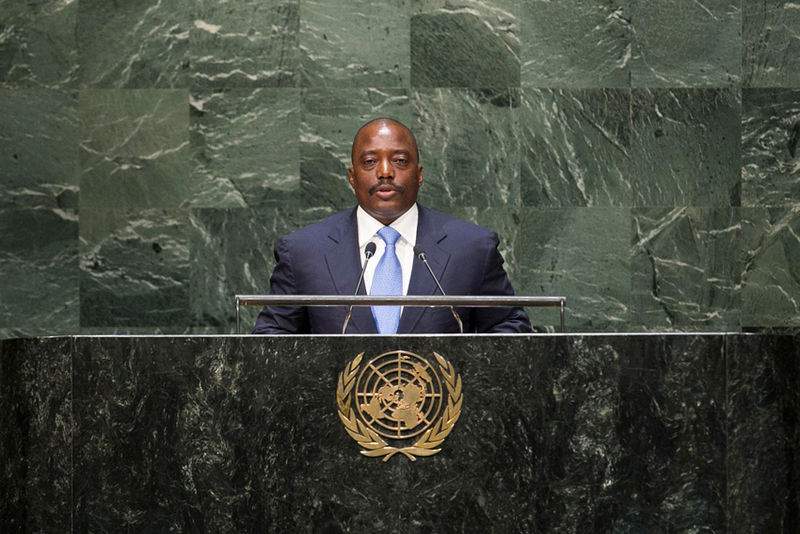In the midst of the debate on cultural decolonization, Congo, too, joins the list of former colonies that have sent requests to the colonizers for the return of works of art taken from their countries of origin(we had covered the cases of Senegal and Côte d’Ivoire here). A few days ago, in an interview with the Belgian newspaper Le Soir, the president of the Democratic Republic of Congo, Joseph Kabila, said that it is currently “in the process” of completing the official request to Belgium, which will be asked to return the objects currently in Brussels’ possession but which were stolen when Congo was a Belgian colony. “Before sending the request,” Kabila explained, “we are waiting for the end of the work and the inauguration of our museum [the new National Museum in Kinshasa, ed. We are also going to renovate the National Museum in Lubumbashi. The restitution application will be on the table. A month before the end of the work, scheduled for June, there will be an official request.”
Congo’s focus is particularly on the objects housed at the Musée royal de l’Afrique centrale (but best known as the Africa Museum) in Tervuren, where a large number of objects from the former Belgian colony are preserved. The museum was recently renovated and expanded (work took five years) and reopened to the public, with a 66 million euro investment. The museum has also long been criticized for its telling of Belgium’s colonial past from a unique perspective, which did not give sufficient space to the atrocities committed by Belgians in the Congo. It should be noted, moreover, that the figure of Leopold II, the king who initiated colonization, is still particularly detested in the African country, so much so that in 2005 a statue of him, newly erected in Kinshasa to commemorate the colonial past “so that it will not happen again” (as the then culture minister Christophe Muzunge put it), was immediately dismantled and made to disappear (it was the equestrian statue replica of the one in Brussels: It was later re-installed in a colonial monument park). The Tervuren museum’s exhibits have thus undergone many changes to popularize the views of African peoples as well, and the section on the colonial past is no longer, as in the old museum, the one that had preponderance.
“Our museums will cooperate with the museum in Tervuren, whose expertise we appreciate,” President Kabila stressed in the interview. “Also, the Tervuren Museum has a large number of documents, our archives, which we would like to recover,” he added. And now that the Africa Museum has adopted a new policy to rehabilitate its image, which has been accused of racism (director Guido Gryssels, in an interview with the New York Times, said that “whole generations of Belgians have visited the museum and received the message that colonialism was a good thing, and that we civilized the Congo by bringing prosperity and culture there”), it is not certain that Congo’s demands cannot be met.
Pictured: Joseph Kabila in a speech at the United Nations General Assembly in September 2014. Ph. Credit
 |
| Congo will ask Belgium for the return of its works of art. This is stated by President Kabila |
Warning: the translation into English of the original Italian article was created using automatic tools. We undertake to review all articles, but we do not guarantee the total absence of inaccuracies in the translation due to the program. You can find the original by clicking on the ITA button. If you find any mistake,please contact us.